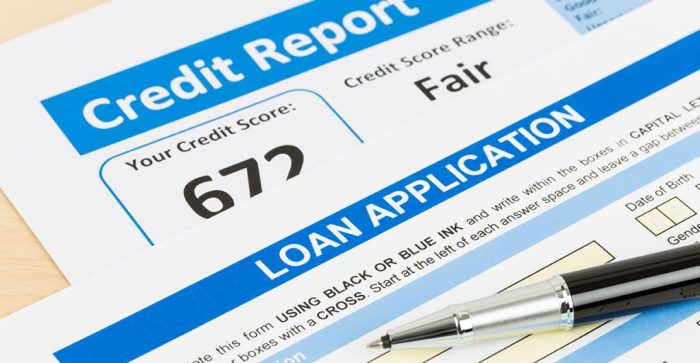Purchasing a new or used car is a significant financial decision. In 2025, the automotive landscape continues to evolve, influencing how we finance our vehicles. This comprehensive guide will explore various financing options, helping you navigate the process and make informed choices for your next automotive purchase.
Understanding Your Financial Situation
Before diving into financing options, it’s crucial to assess your financial health. This involves understanding your credit score, debt-to-income ratio, and overall budget. A strong credit score will significantly impact the interest rates you qualify for. Tools like Credit Karma or AnnualCreditReport.com can help you check your score for free.
Assessing Your Credit Score
Your credit score is a three-digit number that lenders use to assess your creditworthiness. A higher score (generally 700 or above) typically translates to lower interest rates and better loan terms. If your score is lower, consider taking steps to improve it before applying for a car loan. This might involve paying down existing debt and maintaining consistent on-time payments.
Calculating Your Debt-to-Income Ratio (DTI)
Your DTI is the percentage of your monthly income that goes towards debt payments. Lenders prefer a lower DTI, generally below 43%, as it indicates your ability to manage additional debt. Calculating your DTI involves summing your monthly debt payments (excluding mortgage payments, sometimes) and dividing it by your gross monthly income.

Source: co.uk
Creating a Realistic Budget
Develop a realistic budget that includes your monthly expenses, savings goals, and potential car payment. Consider not only the loan payment itself but also insurance, fuel, maintenance, and potential repairs. A well-defined budget will help you determine the price range you can comfortably afford for your next vehicle.
Exploring Financing Options for Your Car
Once you’ve assessed your financial situation, you can explore various financing options:

Source: consumerguide.com
1. Auto Loans from Banks and Credit Unions
Traditional auto loans from banks and credit unions are a common financing method. They typically offer competitive interest rates, especially for borrowers with good credit. Credit unions often provide member benefits and potentially lower rates than banks. Shop around and compare rates from multiple lenders before making a decision. Consider pre-approval to understand your borrowing power before visiting dealerships.
2. Dealer Financing
Dealerships often offer financing through their affiliated lenders. While convenient, it’s essential to compare their rates with those from external lenders. Dealerships might offer incentives or special financing programs, but it’s crucial to carefully review the terms and conditions before agreeing to a loan.

Source: car-revs-daily.com
3. Online Lenders
Online lenders have gained popularity, providing a convenient and often competitive alternative to traditional lenders. They often streamline the application process and may offer financing options for borrowers with less-than-perfect credit. However, it’s crucial to research the lender’s reputation and thoroughly review the loan terms before proceeding.
4. Leasing
Leasing is an alternative to buying, where you pay monthly payments for the right to use a vehicle for a specific period (typically 2-3 years). Leasing often involves lower monthly payments than financing, but you don’t own the vehicle at the end of the lease term. Leasing is suitable for those who prefer newer vehicles and lower monthly costs, but it might not be the most cost-effective option in the long run.
5. Cash Purchase
Buying a car with cash eliminates the need for financing and avoids interest payments. However, it requires having a significant amount of savings readily available. This is often the most financially sound approach, as it avoids accruing debt and interest payments.
Negotiating the Best Deal
Regardless of your chosen financing method, negotiating a favorable deal is crucial. This includes negotiating the price of the vehicle itself, as well as the terms of your loan or lease.
Negotiating the Vehicle Price
Research the market value of the vehicle you’re interested in using online resources like Kelley Blue Book (KBB) or Edmunds. This knowledge will empower you to negotiate effectively with the seller. Don’t be afraid to walk away if you don’t feel comfortable with the offered price.
Negotiating Loan Terms
Once you’ve agreed on the vehicle price, negotiate the loan terms. This includes the interest rate, loan term, and any additional fees. Compare offers from multiple lenders to secure the most favorable terms. A shorter loan term will result in higher monthly payments but lower overall interest paid.
Factors to Consider in 2025
The automotive market in 2025 presents some unique considerations:
Rising Interest Rates
Interest rates can fluctuate, impacting the cost of borrowing. Be prepared for potentially higher interest rates compared to previous years. Shop around for the best rates and consider refinancing if rates decrease in the future.
Electric Vehicle Financing
The increasing popularity of electric vehicles (EVs) has led to specialized financing options. Some lenders offer incentives or lower interest rates for EV purchases. Research available programs and incentives in your area.
Used Car Market Volatility
The used car market has experienced significant volatility in recent years. Carefully research the value of used vehicles before making a purchase, and be aware of potential price fluctuations.
Frequently Asked Questions (FAQ)
- Q: What is a good credit score for a car loan? A: A credit score of 700 or higher is generally considered good for securing favorable car loan terms.
- Q: How long does it take to get approved for a car loan? A: The approval process can vary, but it typically takes a few days to a few weeks.
- Q: What documents do I need to apply for a car loan? A: You’ll typically need proof of income, identification, and your credit history.
- Q: Can I refinance my car loan? A: Yes, you can refinance your car loan to potentially secure a lower interest rate or better terms.
- Q: What is the difference between a loan and a lease? A: A loan allows you to own the vehicle at the end of the loan term, while a lease is a rental agreement.
- Q: How can I improve my credit score? A: Pay your bills on time, keep your credit utilization low, and avoid opening too many new credit accounts.
Resources
Call to Action
Start planning your next car purchase today! Use this guide to assess your financial situation, explore financing options, and negotiate the best deal. Remember to compare offers from multiple lenders and choose the option that best fits your budget and financial goals. Secure your dream car with confidence!
FAQ Explained
What is a good credit score for car financing?
Generally, a credit score above 700 is considered excellent for securing favorable loan terms. Scores below 600 may limit your options and result in higher interest rates.
How long does the car loan application process take?
The application process can vary, but typically takes a few days to a couple of weeks, depending on the lender and the complexity of your application.
Can I refinance my car loan?
Yes, you can refinance your car loan to potentially secure a lower interest rate or a more favorable repayment term. This is often done after your credit score improves.
What documents are needed to apply for a car loan?
Lenders typically require proof of income, identification, and your credit history. They may also request information about your employment and current debts.
